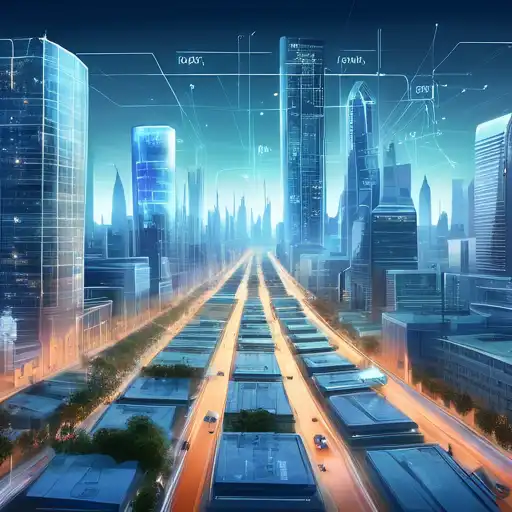Introduction to IoT and Smart Cities
The Internet of Things (IoT) is revolutionizing the way cities operate, making them smarter, more efficient, and more responsive to the needs of their inhabitants. By connecting devices, vehicles, and infrastructure to the internet, cities are able to collect and analyze data like never before, leading to improved services and quality of life for residents.
Key Areas Where IoT is Making an Impact
From traffic management to waste disposal, IoT technologies are being deployed across various sectors to enhance urban living. Below are some of the key areas where IoT is making a significant difference:
- Traffic and Transportation: IoT-enabled sensors and cameras monitor traffic flow in real-time, reducing congestion and improving public transportation systems.
- Energy Efficiency: Smart grids and meters help in optimizing energy use, reducing costs, and promoting sustainability.
- Public Safety: Surveillance systems and emergency response tools powered by IoT enhance security and reduce crime rates.
- Waste Management: Smart bins and waste collection systems ensure cleaner streets and more efficient recycling processes.
Benefits of IoT in Urban Development
The integration of IoT into city infrastructure offers numerous benefits, including:
- Enhanced efficiency and reduced operational costs for city services.
- Improved environmental sustainability through better resource management.
- Increased safety and security for residents and visitors alike.
- Greater convenience and accessibility, making cities more livable for everyone.
Challenges and Considerations
Despite its many advantages, the adoption of IoT in smart cities is not without challenges. Issues such as data privacy, security vulnerabilities, and the need for significant investment in infrastructure must be addressed to fully realize the potential of IoT in urban development.
Future Prospects
As technology continues to evolve, the possibilities for IoT in smart cities are boundless. Innovations in AI and machine learning, coupled with advancements in IoT devices, promise to further transform urban landscapes, making cities not only smarter but also more adaptable to the changing needs of their populations.
For more insights into how technology is shaping the future of urban living, explore our articles on technology innovation and sustainable cities.
